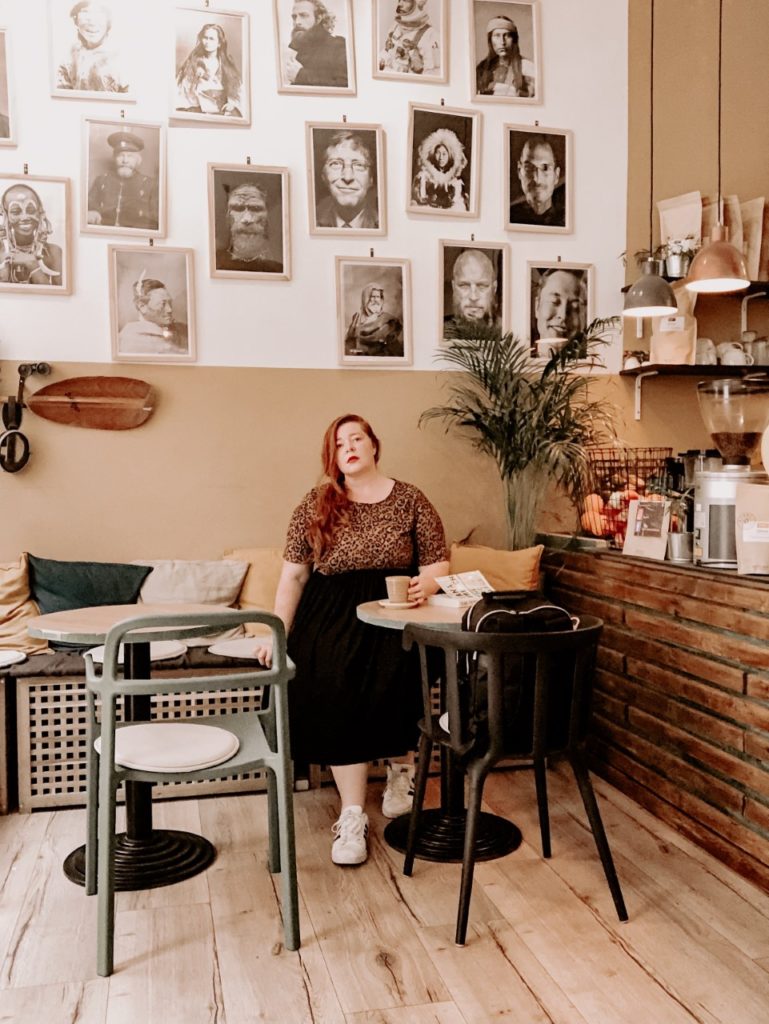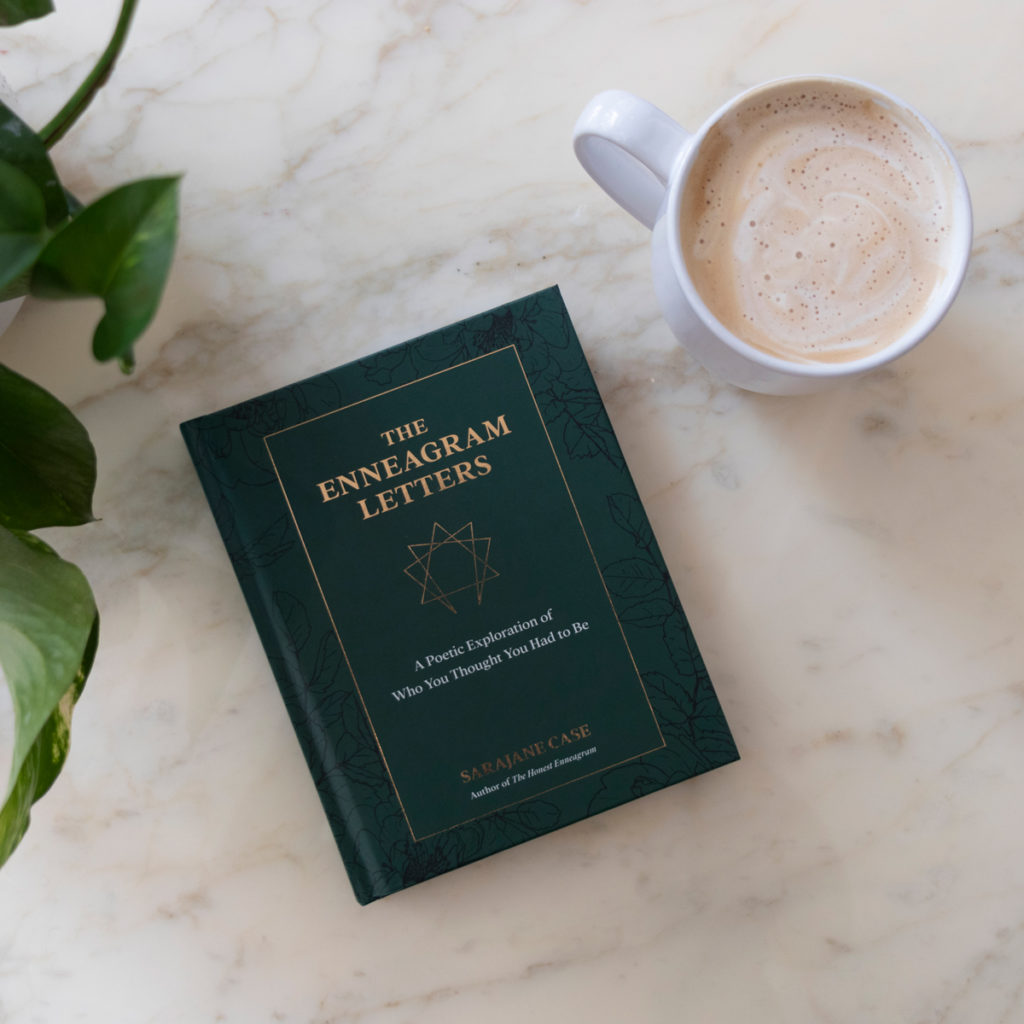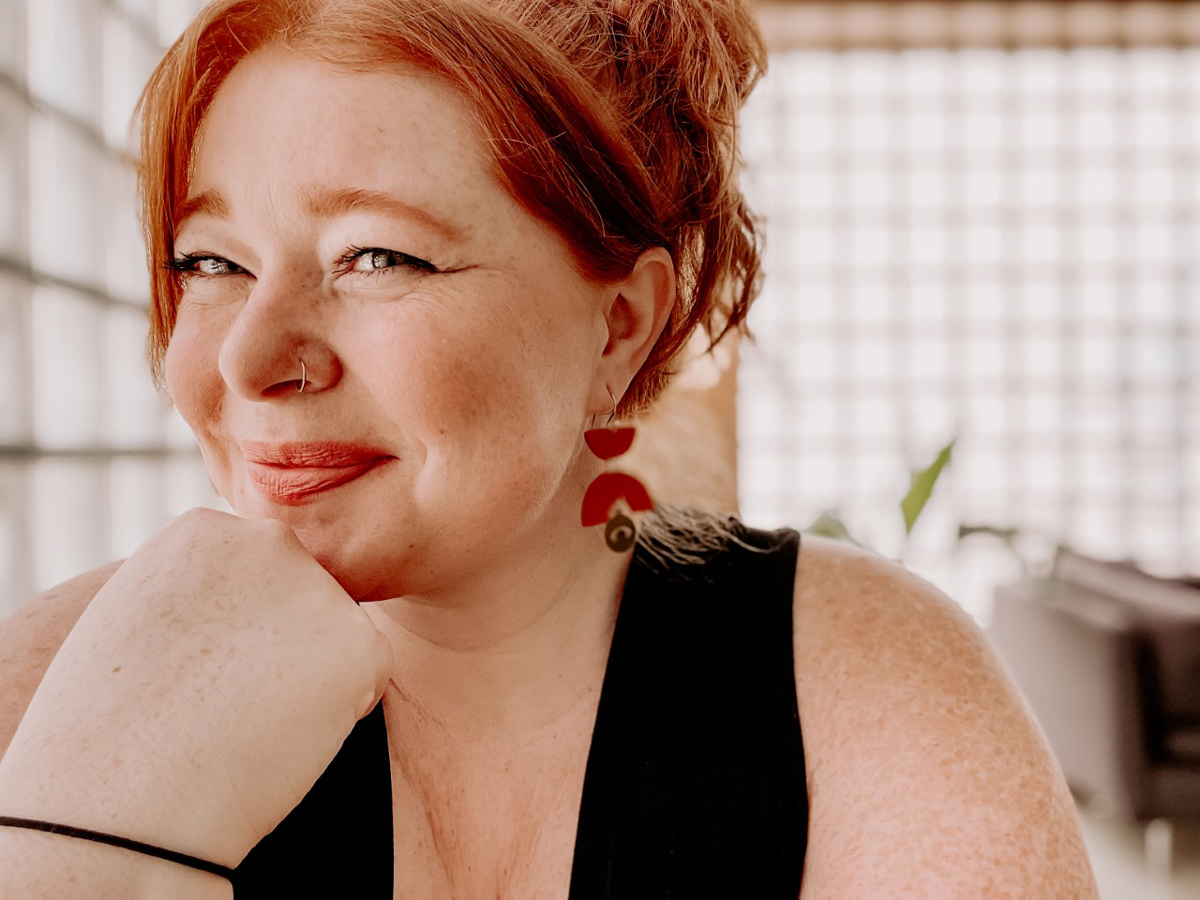8 Questions with The Enneagram Letters Author Sarajane Case
Enneagram expert Sarajane Case helps people heal. Case first discovered the Enneagram—a personality system comprised of nine personality types—while working as a burnout coach, and she has since built an impressive career as an author, speaker, content creator, and podcast host. With two published books under her belt and almost half a million Instagram followers, Case uses her platform to teach people how to use the Enneagram, which can help them understand how they interpret the world and manage their emotions, goals, and relationships.
Case talked with Read Poetry about her recently released second book, The Enneagram Letters: A Poetic Exploration of Who You Thought You Had to Be.

Sarah Muzzillo (SM): What inspired you to write The Enneagram Letters: A Poetic Exploration of Who You Thought You Had to Be?
Sarajane Case (SJC): I think I always knew this book needed to be written. I just didn’t know what form it would take.
Even as a child I had this strong sense that I wanted to write about my personal experiences in a way that helped others to feel less alone in theirs. My first book—The Honest Enneagram—was much more informational, a more typical Enneagram book sharing what the types are and how to work with them for growth. I was able to get my writing voice in some places like the introduction, conclusion, and ending letters to each type. However, I knew that I wanted my next book to be a more creative take on the Enneagram—which can be a very analytical tool.
SM: Your second book explores each Enneagram type through poetry and essays. Why did you want to take this approach?
SJC: So often when we learn the Enneagram we learn it from our heads. We may feel seen, we may learn what we can do to get along more easily with others or we may find a way to use it as an excuse for why we are the way we are. I wanted to write something that bypassed our analytical brains and impacted us on a human emotional level. A shortcut to compassion.
My hope is that through these letters and poems my expression of humanity will make you feel less alone in your experience of being human. I think poetry is one of our greatest tools for inviting people into depth with us. My hope is that The Enneagram Letters invites you into that depth while offering language for more compassion for yourself and others.
SM: In what ways has the Enneagram enriched your life? Why do you personally connect with it, and why are you passionate about sharing it with others?
SJC: For most of my life I thought that the way I viewed the world was the way everyone else should, too. I was a poster child for toxic positivity without even realizing it. I moved on quickly from relationships, jobs, or activities when they weren’t feeling good to me instead of learning how to have healthy conflict or sit with negative emotions. Instead of being truly present with my friends when they were struggling, I would try to make them laugh or offer solutions or try to make them think positively.
Learning the Enneagram helped me to recognize how much of this “positive mindset” was actually just me invalidating my own feelings, limiting the space I had for depth of connection, and causing me to be irresponsible in the name of being free.
Over the years I’ve come to think our greatest strengths, when used at the wrong place and at the wrong time, can become the things that support us the least. Through learning the Enneagram I have been able to become more aware of the temptation to flee, to invalidate, to lean on my charm, and I can consciously choose how I respond instead.

SM: How do you think writers can use the Enneagram to grow in their craft?
SJC: I could probably write an entire book on this alone, but I’ll share the top three ways I believe it can be useful:
- It shows us where we self-sabotage. If you are having a hard time prioritizing your writing, the Enneagram can help us to explore what we are trying to earn by putting it off.
- It is great for writing characters. It is a near-perfect tool for character development. There’s a clear motivation, fear, and growth arc already created for you.
- Honest self-reflection. When we are writing non-fiction or memoir-style pieces it can be really off-putting when the author is not self-aware. The Enneagram can help us to get to a level of self-awareness that allows us to recognize that we are not always the hero in the story.
SM: If folks are interested in exploring the Enneagram, what should they expect? How do you hope your book can aid in this process?
SJC: When you begin exploring the Enneagram, expect to feel deeply seen. So deeply seen that it may feel exposing. Especially if you are anything like me, where you thought everyone should think like you. The Enneagram can be a bit of a wake-up call. But all of the greatest stories need that moment of realizing that the way you view the world may not be the entire picture.
My hope is that my book will help you to come to these realizations while also offering language and perspectives that help you to sit with the discomfort with more compassion for yourself. I hope that it will aid you in growth that is not self-rejecting but instead self-supportive.
SM: In retrospect, what do you wish you’d known at the beginning of your Enneagram journey? What do you understand now that you didn’t then?
SJC: In the beginning, I read my type as being bad or wrong. I tried to fix myself and make myself different than I am. Looking back I feel so bad for that version of myself because she didn’t deserve that level of rejection. Instead, I now think of it as the coping skills I’ve picked up along the way. They served me for a time and they may serve me at times still. But I don’t always have to use them. Sometimes, it’s completely safe for me to try something new. When my initial reaction to something is to force positivity, now I am able to pause and ask myself if that’s the right approach for this situation and make the choice on purpose.
View this post on Instagram
SM: What advice do you have for aspiring authors?
SJC: No one can ever truly prepare you for the moment you put your work out into the world. I think for most of my life it felt like being able to put the title “author” beside my name would mean that I felt different. More whole. More like myself. Yet, it feels much more like standing stiff in an uncomfortable prom dress hoping your date thinks you’re pretty.
Writing and publishing is a horrible, beautiful, uncomfortable, and vulnerable experience the entire time you write, edit, and release your work. DO IT ANYWAY. We all feel it. It never goes away. You are not uniquely unqualified if you feel it too. Keep going.
SM: What do you hope readers take away from this collection?
SJC: A deep well of self-compassion and self-awareness that allows them an overflow of compassion for the world.




